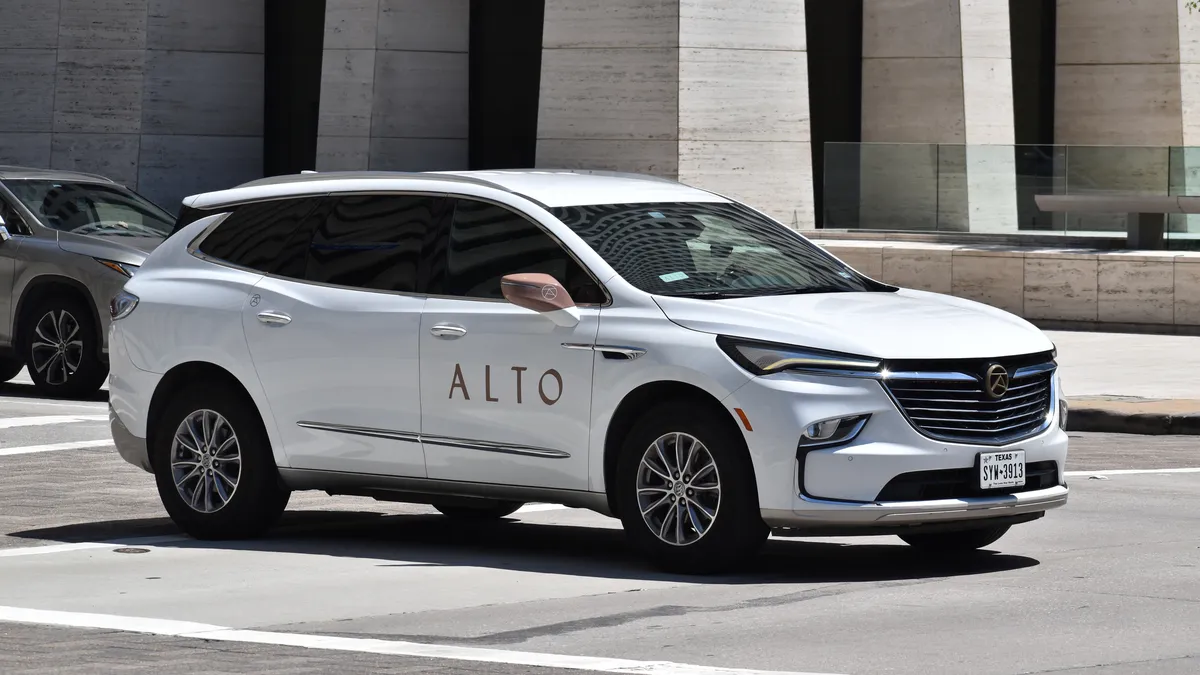Dive Brief:
- Ride-hailing company Alto Experience, Inc., failed to hire at least 20 qualified deaf and hard-of-hearing candidates as personal drivers and failed to provide accommodations to qualified individuals with hearing disabilities, the U.S. Equal Employment Opportunity Commission alleged in a Dec. 6 lawsuit.
- According to the complaint in EEOC v. Alto Experience, Inc., Alto refused to hire the candidates despite the availability of technological accommodations and despite some of the candidates having previous experience as drivers for other ride-hailing companies. EEOC also alleged that the company refused to provide accommodations such as American Sign Language interpreters to candidates.
- The alleged conduct violated the Americans with Disabilities Act, EEOC said. Alto did not immediately respond to a request for comment.
Dive Insight:
In its complaint, EEOC alleged that Alto could have explored a number of accommodations that would have allowed deaf and hard-of-hearing individuals to complete the essential job functions of a personal driver.
For example, Alto’s policies required personal drivers to be able to hear instructions from members of the company’s dispatch team and communicate with dispatch through a headset or earbuds. But EEOC claimed that Alto denied reasonable accommodations that would still allow deaf individuals to send and receive such communications, such as enabling text message functionality in the company’s messaging app, video relay service or videophone calls when drivers are pulled over.
The move to decentralized work in the past few years placed a spotlight on accommodations for workers with visual and hearing disabilities. The Job Accommodation Network maintains a list of potential accommodations that could allow workers who are deaf or hard of hearing to perform essential job functions, such as assistive listening devices, headsets and captioned phone calls.
“Too often, employers make incorrect assumptions about [deaf and hard-of-hearing individuals’] capabilities and do not understand how to provide effective communication accommodations,” Mindy Weinstein, director of EEOC’s Washington field office, said in a press release.
EEOC previously pursued litigation on behalf of a truck driving job candidate who was allegedly denied the position because he was deaf, leading to a $36 million jury verdict in favor of the applicant. Last July, the agency inked a more than $1 million settlement with a nonprofit government contractor that it alleged, in part, failed to accommodate healing-impaired janitorial and maintenance workers.













